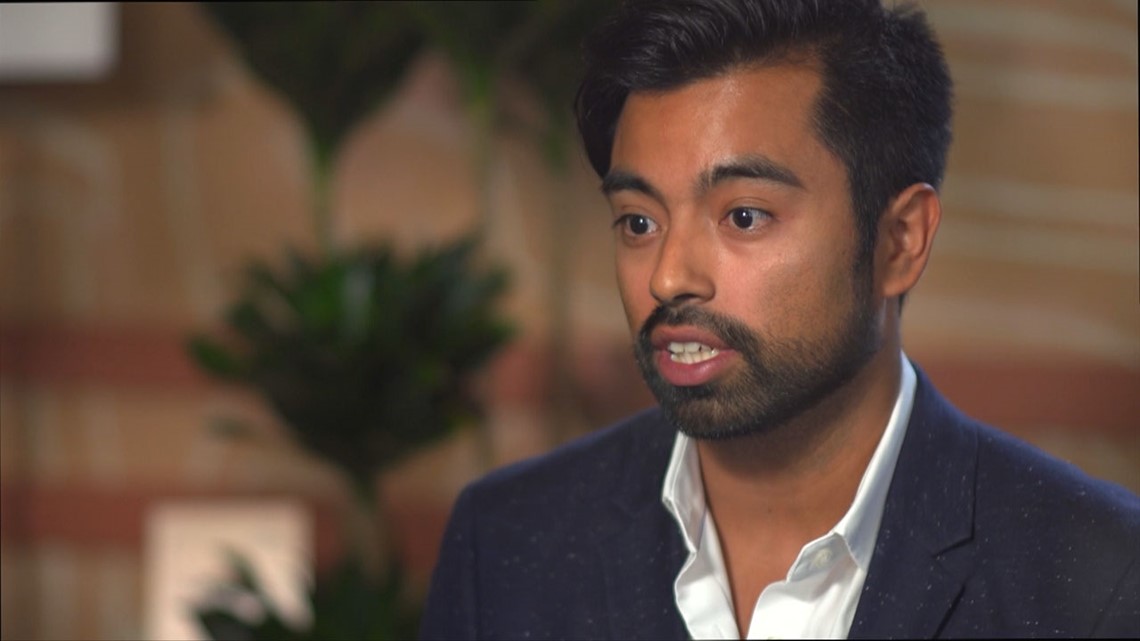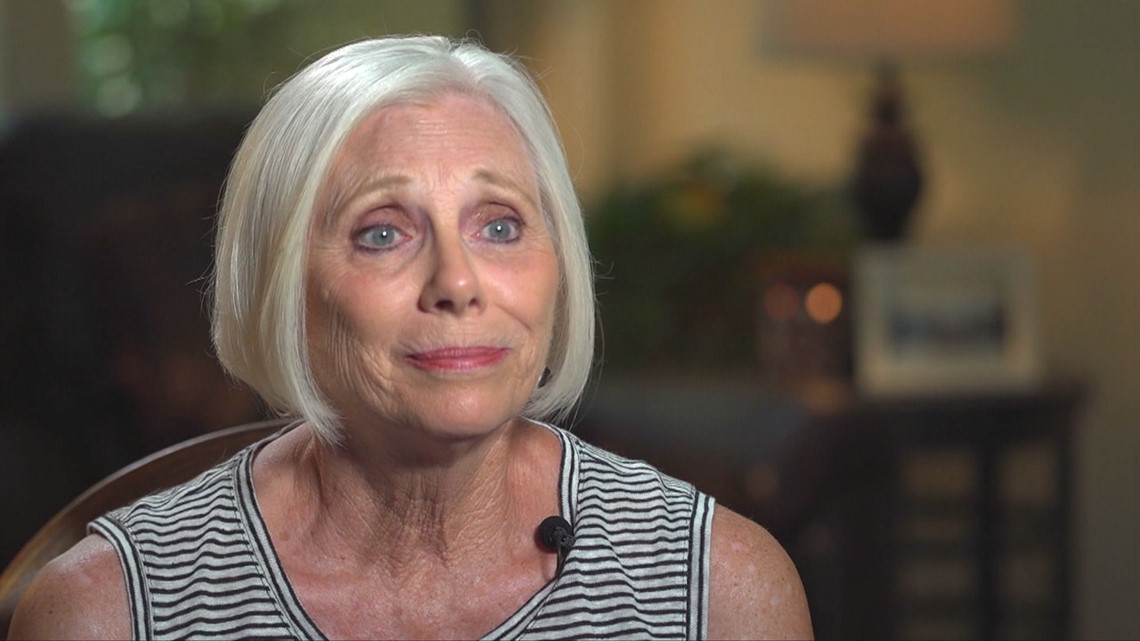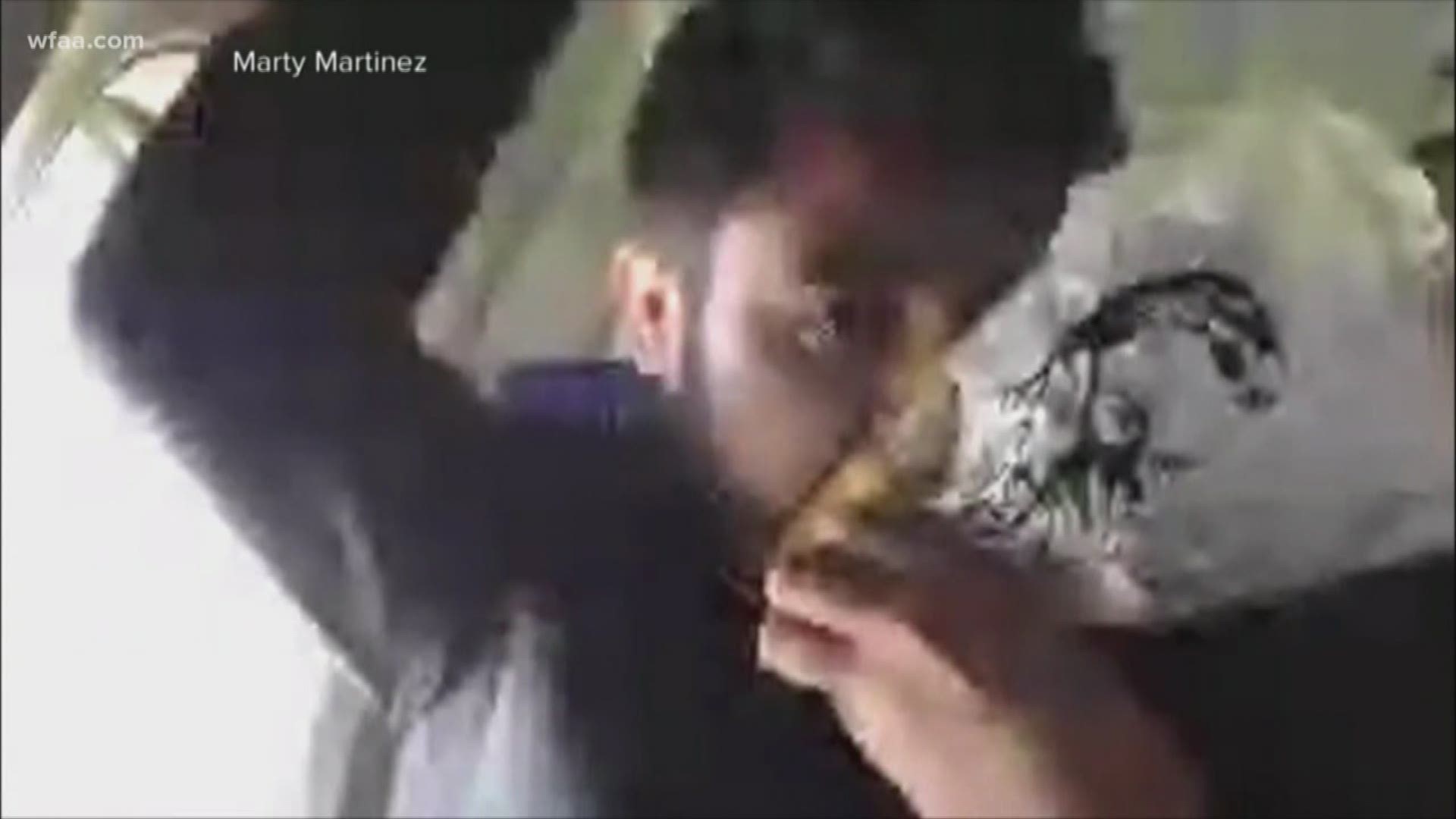How we respond under stress says a lot about who we are.
On April 17 of this year, 149 people got an up close view of that response when Flight 1380's engine blew.
"All of a sudden there was this huge explosion," said Peggy Phillips, a Dallas resident.
When the left engine blew it sent shrapnel through a passenger window, ultimately killing Jennifer Riordan.
"It didn't last a moment," said Marty Martinez, another passenger from the Dallas area. "It lasted 20 excruciating minutes."


Martinez told WFAA that every second of every minute he thought it would be their last.
The point is that people like Martinez and Phillips were all unintended witnesses.
"You don't get to be a bystander in that," said Sarah Feuerbacher, of SMU's Center for Family Counseling. "You're either an active participant or lack of participant."
Moving on after an up-close tragedy like this depends on the person.
Peggy Phillips is the nurse who did compressions on Riordan. She and a fireman from Celina both switched off doing compressions until the plane landed.
Phillips has been a school and hospital nurse for more than 25 years. She has seen and responded to just about every kind of tragedy.
"I got on a plane that night and came home," she said. "I did."
Martinez, the man who runs his own social media firm, took to Facebook Live while on the flight. His images were some of the only images we had of that tragic moment. Martinez said sharing on social media was his way of "reaching out to the family." He distinctly remembers trying to prioritize who he had to alert in his family about the plane in those stress-filled minutes.
"It's just so foolish to think we're invincible," he said.
Martinez is open about his struggle to get back on a plane.
"I've actually bought the flights and canceled them because I thought it was too soon," he said.
The fear of flying is common, according to Feuerbacher.
"In some terms having boundaries is a very healthy thing," she said. "But there has to be the 'but' piece, 'but I'm going to start with counseling.'"
Overcoming the fear of flying is like any other fear. Feuerbacher showed WFAA how play therapy helps children express themselves. This way children can literally play through their anxieties of getting on a plane.
"They're working through the emotions that they're feeling," she said.
It's no different with adults, but adults most oftentimes can verbalize the anxiety.
Other tips widely used to combat anxiety include exposure therapy and deep-breathing and visualizing techniques. The last technique is about reinforcing in your head something positive coming out of your trip on the plane. There are other techniques that have been proven useful and depends on the person.


In Phillips' case it was about working it out. She fills her day with activities like hiking and going to the gym.
"To me, activity is my way of dealing with things," she said.
She will, however, admit she will not take a window seat again.
Martinez is seeing a therapist and has been diagnosed with PTSD. For him, it is clear that while time may heal some wounds it does not heal all. And it certainly hasn't been long enough before he gets on a place to the East Coast on business.
"I have a flight tentatively scheduled for Friday the 13th, ironically," he said.
We all respond differently after tragedy. The question is, does that response restrict us from a healthy living?

